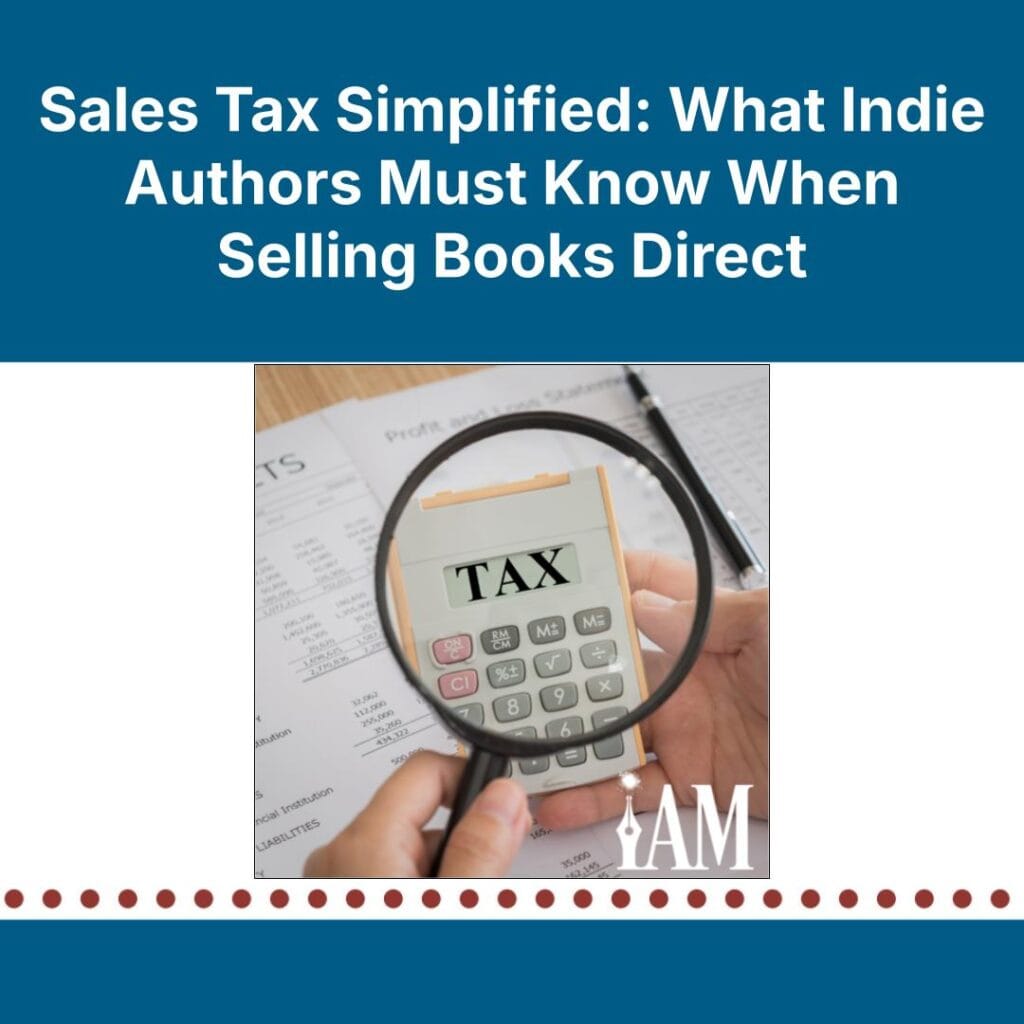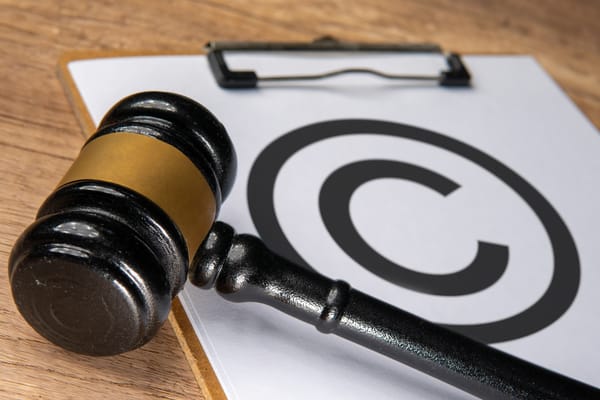Direct sales—selling books or other products and services from your own website instead of relying on retailers—is one of the fastest growing strategies for diversifying author income today. However, it can also be complex, and among other elements of the process, understanding sales taxes for a small online business can turn authors off from this potentially lucrative revenue source.
Historically, authors only owed sales tax when making a sale in the same jurisdiction they lived in. As online sales now constitute a larger share of retail, governments have passed laws ensuring these transactions are taxed.
Today, online sellers typically must collect sales tax on most sales, even when purchasers live in other countries. This extra complexity can seem daunting initially, but understanding the basics makes it manageable. This article covers key concepts, thresholds, and resources you need to know about sales tax and VAT when going direct.
What Is Nexus?
Nexus is an element of US sales tax law that determines whether a business must collect sales tax in each state—specifically, it's "the connection between a business and state or local government that triggers the requirement to collect and remit sales," according to Stripe.
Each state calculates nexus differently. When your business has sufficient connection to a specific state (through residence, physical presence, or surpassing certain sales thresholds), you gain nexus there and must collect and remit sales tax to that state.
Each state sets unique sales tax rates and establishes thresholds at which sales tax collection becomes mandatory. Some states establish nexus when there are fewer than two hundred transactions, whereas others require annual sales of up to $500,000 along with numerous transactions. Avalara provides a comprehensive overview of current state thresholds: sales tax nexus laws by state.
US sales taxes apply globally, meaning online sellers outside the US must also comply. International businesses are encouraged to collect required US taxes due to mutual tax collection treaties, though smaller businesses often won't quickly hit nexus thresholds.
Understanding EU and UK VAT
The EU and UK use VAT—value-added tax—instead of a conventional sales tax. Unlike US sales tax, charged once at retail purchase, VAT accrues each step of value addition along the supply chain. Essentially, manufacturers, distributors, and consumers each pay VAT at distinct stages.
The European Union maintains a yearly €10,000 minimum threshold for international or intra-EU sales. Beyond that point, VAT must be collected and remitted for all retail transactions. Note that authors in EU member countries usually face local VAT obligations even below this minimum.
The EU provides a unified VAT registration system known as the "One-Stop Shop": EU VAT One-Stop Shop.
Distinctly, the UK has no minimum VAT threshold for international sales; VAT collection obligations start from the first sale into the UK. Authors will thus encounter UK VAT compliance early. Additional guidance can be found on the official UK government site: UK VAT guidelines.
Sales Tax Compliance in Canada
Canada mandates global online sellers to remit sales tax if exceeding a $30,000 CAD annual sales threshold. Online shops internationally must remit GST (Goods and Services Tax) or HST (Harmonized Sales Tax)—depending on the province—for sales of digital and physical products to Canadian consumers.
For additional details, see the Government of Canada's official site: GST/HST cross-border guidelines.
Simplifying Sales Tax and VAT Management
Managing sales tax and international VAT might initially seem overwhelming for authors. Luckily, platforms and tools exist to simplify these responsibilities.
1. Platforms Acting as Merchant of Record
Choosing an online platform as your "merchant of record" effectively shifts all tax collection and reporting obligations to them in return for a percentage of sales. Examples include Gumroad (takes 10%) and Fourthwall (3-5%).
2. Tax Compliance Apps or Plug-ins
Platforms such as Shopify and WooCommerce offer plug-ins or apps designed to handle tax collection efficiently. While sometimes needing multiple extensions, these tools still streamline your operational tax compliance.
Embrace Direct Sales with Confidence
As tax regulations grow complicated internationally, many authors understandably hesitate to start direct selling. But the boom in industry-standard tools has streamlined solutions, enabling straightforward tax compliance.
Start by familiarizing yourself with provided resources, and seek expert advice if needed. With these tools and an informed approach, authors needn't let tax complexity prevent them from benefiting from the rapidly growing direct-sales model. Embrace this new frontier confidently and open your author business to exciting revenue opportunities.
Kevin McLaughlin is the USA Today bestselling author of 83 books, primarily in science fiction and fantasy. He has also authored The Coffee Break Novelist and You Must Write, and has decades of experience enjoying and creating serial fiction.











